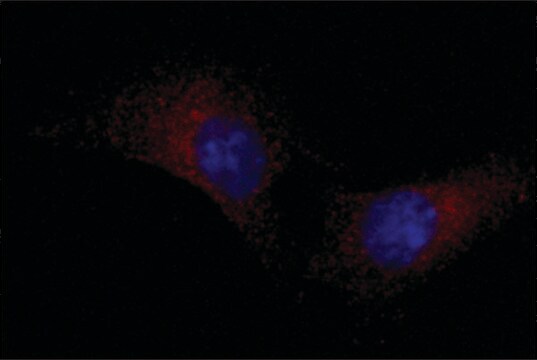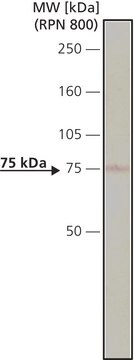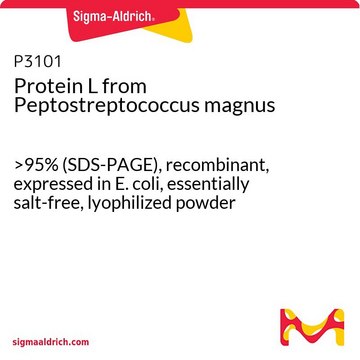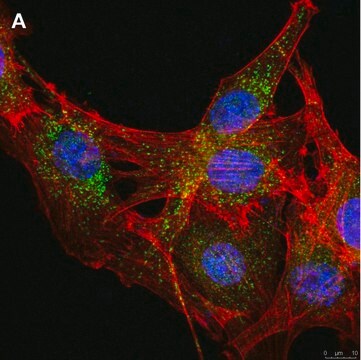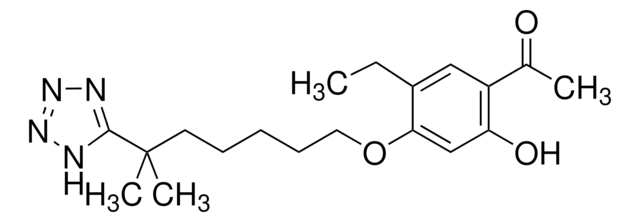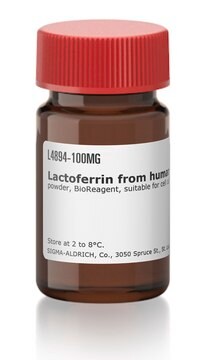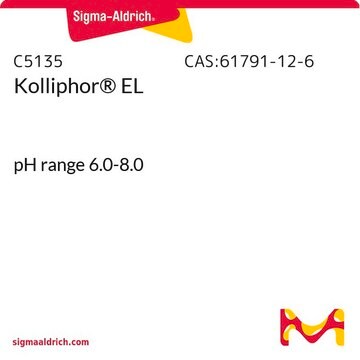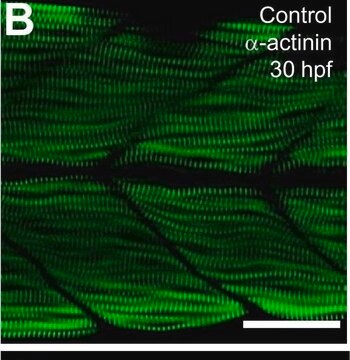L2420
Monoclonal Anti-LRP1 antibody produced in mouse
~1.0 mg/mL, clone LRP1-11, purified immunoglobulin, buffered aqueous solution
Synonym(s):
Anti-A2MR, Anti-APOER, Anti-APR, Anti-Apolipoprotein E receptor, Anti-Apolipoprotein receptor, Anti-CD91, Anti-LRP, Anti-Lipoprotein receptor-related protein, Anti-Low density lipoprotein receptor-related protein 1
About This Item
Recommended Products
biological source
mouse
conjugate
unconjugated
antibody form
purified immunoglobulin
antibody product type
primary antibodies
clone
LRP1-11, monoclonal
form
buffered aqueous solution
mol wt
antigen ~500 kDa
species reactivity
human, rat, mouse
concentration
~1.0 mg/mL
technique(s)
indirect immunofluorescence: suitable
western blot: 1-2 μg/mL
isotype
IgG1
UniProt accession no.
shipped in
dry ice
storage temp.
−20°C
target post-translational modification
unmodified
Gene Information
human ... LRP1(4035)
mouse ... Lrp1(16971) , Lrp1(299858)
General description
Specificity
Application
- immunoblotting
- enzyme linked immunosorbent assay
- immunofluorescence
Biochem/physiol Actions
Physical form
Storage and Stability
Disclaimer
Not finding the right product?
Try our Product Selector Tool.
recommended
Storage Class Code
10 - Combustible liquids
Flash Point(F)
Not applicable
Flash Point(C)
Not applicable
Certificates of Analysis (COA)
Search for Certificates of Analysis (COA) by entering the products Lot/Batch Number. Lot and Batch Numbers can be found on a product’s label following the words ‘Lot’ or ‘Batch’.
Already Own This Product?
Find documentation for the products that you have recently purchased in the Document Library.
Our team of scientists has experience in all areas of research including Life Science, Material Science, Chemical Synthesis, Chromatography, Analytical and many others.
Contact Technical Service